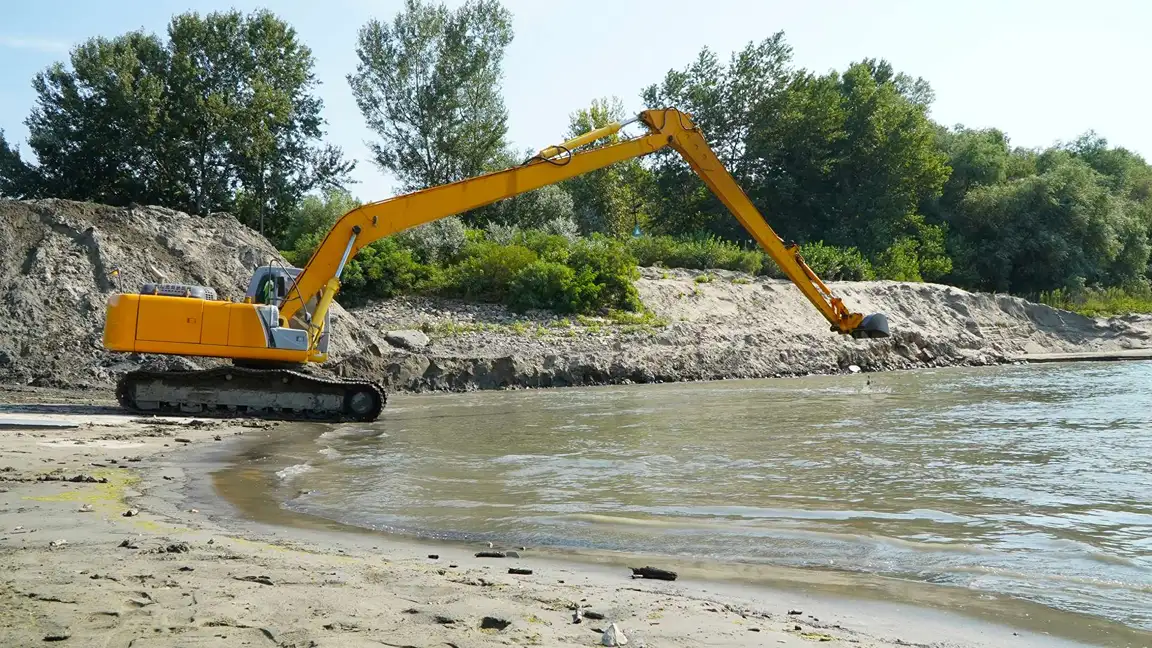Introduction
In a surprising development for regional maritime infrastructure, the Ukrainian Sea Ports Authority (USPA) has canceled a major tender for dredging work in the Danube Canal, located in the Danube Delta. The ₴78 million project aimed at maintaining the deep-water shipping lane in the Izmail region received no bids, casting uncertainty on the future of this vital waterway. The lack of contractor interest raises serious questions about project feasibility, regional logistics, and how the USPA will proceed.
Background of the Dredging Project
The dredging project was intended to maintain the sea approach channel of the Danube Canal along the Danube River–Black Sea deep-water shipping route at the Bystre mouth in the Izmail district. The canal, stretching 3.374 kilometers, required the removal of up to 284,400 cubic meters of sediment. The scope included transporting the dredged material to a designated landfill and shaping the canal banks to specific slopes using self-propelled dredgers. These efforts were critical for preserving navigability and environmental stability in the region.
Tender Details and Cancellation
Announced on the Prozorro public procurement system, the tender had a set auction date of April 10. However, the bidding was canceled after receiving no submissions. The planned budget stood at UAH 77.99 million, covering not just dredging and disposal but also scientific support services, such as calculating natural siltation rates via the Danube Hydrometeorological Observatory.
The absence of bids suggests possible issues with project scope, profitability, or logistical complexity, signaling the need for revised terms or incentives in future tenders.
Potential Impacts of the Cancellation
The halted project threatens to disrupt maritime traffic in the Danube Canal, a crucial transit route linking inland ports to the Black Sea. Without regular maintenance, sedimentation may reduce channel depth, affecting both cargo volume and shipping safety. Delays in maintenance also heighten the risk of environmental degradation, particularly in such an ecologically sensitive region.
Operationally, USPA faces setbacks in meeting its dredging schedules, which could have budgetary implications and strain relationships with commercial stakeholders relying on efficient transport routes.
Future Outlook and Re-Tender Possibilities
While no new tender date has been announced, USPA has hinted at the possibility of re-issuing the contract under adjusted terms. To attract qualified bidders, the authority may consider breaking the project into smaller segments, adjusting timelines, or offering more favorable financial conditions.
Additionally, improving contractor engagement and addressing logistical barriers—such as equipment mobilization and environmental compliance—could enhance participation in future bidding rounds.
Related Developments in the Region
Despite this setback, USPA has moved forward with other regional projects. The Southern Branch recently concluded a tender for repairing the research vessel Odessos, initially budgeted at UAH 12 million. The contract was awarded to Kherson Fleet Service LLC, which underbid its competitor, ISRZ PJSC, by UAH 640,000.
Furthermore, tenders have been completed for maintenance of boats and road infrastructure, signaling that the broader investment into port and navigation infrastructure continues.
Conclusion
The cancellation of the Danube Canal dredging tender has left a critical infrastructure project in limbo. With sediment buildup threatening navigation and regional trade, the need for timely action is more urgent than ever. While USPA is expected to revisit the tendering process, future success will depend on addressing the challenges that deterred contractors this time around. Transparent terms, strategic planning, and active contractor outreach will be key in ensuring this essential project moves forward to support Ukraine’s maritime network and economic stability.
